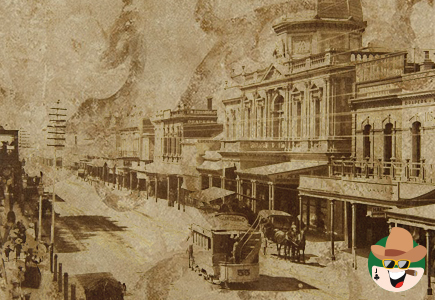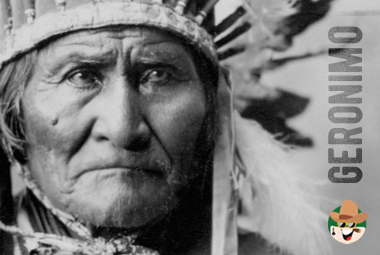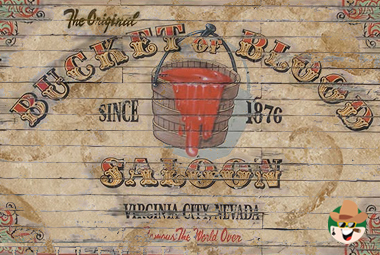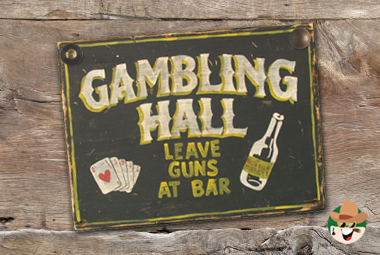

It never ceases to amaze me when I realize how far gambling has come from the days of the Old West.
People win and lose vast amounts of money in poker rooms and casinos. While the losers don't like it, they accept their losses without violence. They don't reach into a boot or coat pocket and pull out a gun to settle the score. They are civilized.
It wasn't that way in the 1800s.
Almost everybody gambled in the Old West. Prospectors, cowboys, dance-hall girls, cattle barons, clergymen, Indians, and even children crowded up to the green felt tables to risk what they had on lady luck.
The games weren't played in well-regulated casinos with plenty of security officers. They were held in tents, on the open range, and in saloons where the only law was the law of the gun.
People would risk everything they owned on the turn of a card, the spin of a wheel, a horse race, the turning of a shell, the roll of dice, or even an invented sports game.
Indians bet their ponies, their teepees, their wives and even their clothing. And when they lost, their passion could be turned into violence.
They didn't play fair and square like they do in today's casinos. Many of the gamblers were scoundrels and cheats. Almost all of them carried guns, knives or other weapons and they weren't afraid to use them.
Gambling in the west was so widespread that in some cities and towns, employees were paid in company vouchers instead of cash. The vouchers could be redeemed for chips in a saloon. Many times a cowhand or a lumberjack would be paid after working a month or more and lose all of their money in one evening at a gambling house.

George Devol was a professional gambler who took on a group of Indian poker players in the early West. One of the Indians was a wily chief whose partner stood behind Devol and revealed his hand to the chief through sign language.
Devol soon caught onto their scheme and took action to shift his luck. He secretly palmed cards into a winning hand and made a big bet that the chief called with a bag of silver. When Devol raked in the pot, the chief was so upset he attacked the brave with a tomahawk.
Geronimo, the notorious Apache chief, was also a gambler. Geronimo loved poker and became very adept at dealing it. He would play poker with his braves after a successful raid while drinking copious amounts of whiskey. The next morning he would get rid of his hangover by 'drinking up the creek,' another Apache chief called Nino Cochise said.
Nino was 104 years old when I met him in Wilcox, AZ. He had written a book called 'The First 100 Years of Nino Cochise' and he gave me an autographed copy of it. I wish I still had the book but somehow it vanished in my travels.
Wild Bill Hickok was playing poker in a saloon when one of his enemies slipped up behind him and shot him in the head. He died instantly holding a poker hand of aces and eights. The hand was nicknamed the 'dead man's hand.'
Despite the cheating that went on, most gamblers were respected by society. They reasoned it was an American tradition. After all, George Washington had gambled at cards, Thomas Jefferson who wrote the Declaration of Independence had kept records of his wins and losses at lotto and backgammon, and Andrew Jackson had wagered on the horses.
The Indians used to love to gamble with cowboys at poker and horse racing. A cowboy who accepted an Indian brave's challenge to race their horses got ready for the race only to discover they would do it without saddles or clothing.

Stark naked, he mounted his horse and lost to the Indian while the squaws applauded the brave and hooted their derision at the embarrassed cowpoke.
John Wesley Hardin was a notorious gunfighter and gambler who was part owner of a casino. He would often mark his cards with bullets. He was shot to death one evening while rolling dice for drinks.
Renown journalist Horace Greeley visited Denver, CO. in 1859 and paid for a room at the Denver House, a hotel that had a gambling hall. He was upset that only a thin canvas curtain separated his room from the gamblers.
He marched into the gambling hall and denounced everyone in a speech. They ignored him and continued gambling. Greeley departed the next day.
Then there is the Bucket of Blood Saloon in Virginia City, NV. Samuel Clemens, aka Mark Twain, was a regular visitor there where he would imbibe drinks and play poker. The Bucket of Blood gained its name from several gunfights as well as intoxicated cowboys who would fire their pistols at the ceiling.
Is the West still wild? Some say it is but nothing like the old days. You can thank progress for that.
Author: Geno Lawrenzi Jr.
(Geno Lawrenzi Jr. is an international journalist, magazine author and ghostwriter and poker player who lives in Phoenx, AZ. He has published 2,000 articles in 50 magazines and 125 newspapers. If you want to share a gambling story or book idea with him, send an email to glawrenzi@gmail.com ).





